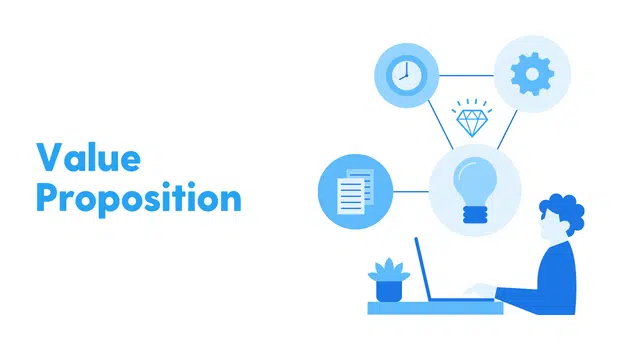Are you aspiring to become a Business Analyst? The first step towards your dream job is acing the interview. Interviews for the role of a Business Analyst can be challenging and demanding.
However, with the right preparation and understanding of the key interview questions, you can confidently navigate the process and impress potential employers.
Business analysts are responsible for gathering and analyzing data to develop solutions that meet customer needs.
The interview process is a valuable opportunity to assess the skills and qualifications of potential candidates.
As such, it is important for employers to ask questions that can effectively evaluate their knowledge of business analysis theory, techniques, and tools, as well as their ability to manage stakeholders and craft solutions tailored to customer needs.
This article will explore key questions employers should consider asking when interviewing business analyst candidates in order to ensure they find the right person for the job.
Here, we'll walk you through a wide range of Interview Questions for Business Analyst positions. Whether you're a seasoned professional or just starting your career, these insights will help you succeed in your next interview.
READ ALSO: Interview Questions For an Administrative Assistant Job
A Quick Introduction
Before we delve into the specific questions, let's understand the role of a Business Analyst and why these interviews are crucial.
Business Analysts play a pivotal role in bridging the gap between business objectives and technical solutions. They analyze data, identify business needs, and recommend solutions to help organizations achieve their goals efficiently.
Landing a Business Analyst position requires a combination of skills, knowledge, and the ability to demonstrate your suitability for the role during interviews.
In this article, we will provide you with a treasure trove of Interview Questions for Business Analyst roles. We'll cover a variety of topics, from foundational questions to those that assess your problem-solving abilities and domain knowledge.
Each question will be followed by a detailed explanation, helping you not only understand what the interviewer is looking for but also how to structure your responses effectively.
So, without further ado, let's dive into the world of Interview Questions for Business Analysts.
READ ALSO: Top Phone Interview Questions: How to Ace the Initial Screening
Interview Questions For Business Analyst

What is the role of a Business Analyst in an organization?
In your response, highlight the key responsibilities of a Business Analyst, such as requirement gathering, data analysis, and process improvement.
Emphasize the role's importance in enhancing business operations.
What experience do you have in business analysis?
The focus of this question is to analyze your experience related to business analysis.
Experience in business analysis job includes skills such as data visualization, problem-solving, and customer needs assessment. Data visualization involves presenting complex information in a visually appealing way so that it can be easily understood by stakeholders.
Problem-solving requires the analyst to identify potential problems and develop solutions to address them. Additionally, the analyst must ensure that their solutions are tailored to customer needs by analyzing customer requirements and preferences thoroughly.
The ability to effectively assess customer needs is essential for any business analyst. This involves gathering relevant data from customers and other sources and then interpreting it to gain insights into customer trends and behavior patterns.
The analyst must also use this data-driven approach when developing solutions for customers. For example, an analyst might identify a gap between desired outcomes and actual results, and then brainstorm ideas on how best to meet those expectations efficiently.
Finally, an effective business analyst should have strong communication skills in order to clearly articulate their findings and suggestions with stakeholders at all levels of the organization.
Good experience in business analysis requires an understanding of both quantitative and qualitative methods for gathering insight into customer trends and preferences.
Such knowledge will enable the analyst to develop comprehensive solutions that are tailored specifically for each client's unique needs while still maintaining efficiency within their organization's processes or procedures.
With these skills in hand, analysts can confidently provide valuable insights that help organizations make informed decisions quickly while providing high-quality services or products for customers.
READ ALSO: Phone Interview Tips That Will Help You Get The Job
How do you ensure that your solutions are tailored to customer needs?
By utilizing understanding and experience, solutions can be crafted to cater precisely to customer requirements.
Analyzing the issue in detail is a core part of this process, as it allows one to understand how collective insights and cost optimization must be applied for the best outcome.
Gathering data from a variety of sources is then essential in order to have an understanding of the customer context. This may include surveying existing customers, researching market trends, or speaking with stakeholders and subject matter experts.
Once all relevant data has been accumulated, the next step is to analyze it. Depending on the type of project, various analytical techniques can be employed such as PESTLE analysis or SWOT analysis.
These are used to uncover deeper insights into consumer behavior which can later help inform decisions regarding product development or operational efficiency improvement initiatives.
Additionally, statistical modeling tools such as regression analysis might also be used in order to identify correlations between customer preferences and certain outcomes that could potentially influence strategy design or budgeting allocations for future projects.
Finally, recognizing potential patterns within the data collected and applying common sense when making decisions are both important skills when ensuring customer needs are fulfilled by any proposed solution.
By leveraging these aspects along with a clear perspective on what resources are available, business analysts can ensure their solutions benefit both customers and stakeholders alike.
READ ALSO: Diversity Questions For Interview
What techniques do you use to gather and analyze data?
Through a comprehensive examination of available resources, data can be collected and analyzed to offer insights into customer needs.
Some of the most common techniques used by business analysts to collect and analyze data include:
- Data Mining: Gathering large volumes of data from multiple sources and uncovering patterns in the information.
- Problem Solving: Identifying problems within existing systems, processes or procedures and formulating solutions.
- Statistical Analysis: Using mathematical methods to identify trends and correlations in data sets.
The goal of these activities is to achieve an understanding of customer preferences, behaviors, motivations, and needs.
By analyzing the gathered data with various tools such as spreadsheets and databases, business analysts can draw meaningful conclusions that help shape decisions about products, services, or processes.
Additionally, visualizing this information as graphs or charts also allows for easy comprehension by stakeholders. With effective analysis techniques, businesses have access to valuable insights that can steer them toward success in their respective markets.
As such it is essential for business analysts to be well versed in gathering and analyzing data for informed decision making.
READ ALSO: Answering The Interview Question “What Motivates You”
How do you stay up-to-date on industry trends?
Examining current evidence and research helps to stay abreast of industry trends.
Technology advancement and data analysis are two important elements in understanding changes within an industry. By analyzing technological advances, one can identify new ways to improve efficiency or increase customer satisfaction.
Additionally, data analysis provides valuable insights into the overall market performance, enabling business analysts to gain a better understanding of how their organization fits within the broader context.
Furthermore, staying up-to-date on industry trends allows business analysts to anticipate future challenges and opportunities for improvement.
Through monitoring competitors' activities and analyzing customer feedback, one can develop strategies that address current issues before they become major problems.
Additionally, staying informed on emerging technologies such as artificial intelligence (AI) or blockchain can provide unique opportunities for forward-thinking organizations in terms of innovation and growth potential.
Overall, examining technology advancements and data analysis while keeping tabs on competitor activities enables business analysts to stay proactive rather than reactive when it comes to preparing for future changes across the industry landscape.
This knowledge also provides guidance when making decisions concerning organizational strategy and investment approaches, helping businesses remain competitive over time.
Moving forward then requires being able to manage stakeholders effectively in order to ensure the successful implementation of any initiatives arising from this process.
READ ALSO: What Is Resume Writing? | Expert Guide
What techniques do you use to manage stakeholders?
Effectively managing stakeholders is a key component to the successful implementation of initiatives related to industry trends.
To manage stakeholders, it requires an understanding of how to build relationships with them and ensure their participation.
This includes using a variety of techniques such as:
- Structured Interviews: Conducting interviews that are structured allows for more accurate comparisons between stakeholders, facilitates the gathering of information from multiple sources, and identifies potential risks associated with stakeholder involvement.
- Problem Solving: When managing stakeholders, it is important to use problem-solving skills to identify areas where there may be disagreements or conflicting interests among the parties involved. It is also important to have solutions ready in case these arise during project discussions.
- Communication Skills: Having strong communication skills enables one to effectively communicate with stakeholders on both a personal and professional level. This includes being able to listen carefully while addressing any concerns they might have regarding project progress or results. Additionally, this helps create trust between all parties involved which can go a long way towards ensuring successful project outcomes.
By utilizing these techniques when managing stakeholders, one can increase their chances of creating successful implementations for initiatives related to industry trends.
Moreover, having the skills necessary for effective stakeholder management will help business analysts demonstrate their value to organizations as well as provide them with greater opportunities for career advancement within the field.
READ ALSO: Behavioral Interview Questions You Should Expect
What do you consider to be the most important skills for a business analyst?
In order to succeed in the field, a business analyst must possess a set of indispensable skills that can help them effectively analyze industry trends and develop strategies for successful implementations.
Data visualization and problem-solving are two essential components for any business analyst. Data visualization is an important skill as it allows business analysts to quickly review data sets and identify key insights.
Problem-solving is also an invaluable ability, allowing them to tackle complex strategic challenges with clear objectives.
Business analysts need to have excellent communication skills so they can discuss their ideas with stakeholders in an effective manner.
They should be able to convey technical concepts in plain language and understand the needs of various stakeholders and communicate accordingly.
Additionally, they need strong analytical skills that include researching market trends, forecasting outcomes, analyzing customer surveys, drawing logical conclusions from data sets, and creating reports on findings.
Time management is another crucial skill as it helps business analysts stay organized while juggling multiple tasks at once. They must be able to prioritize tasks according to urgency while still being able to deliver quality results within tight deadlines.
Business analysts should also have good presentation capabilities so they can present their findings in meaningful ways that will inspire action among stakeholders.
All of these qualities combined allow for the most successful business analysts who are capable of driving projects forward efficiently and effectively.
READ ALSO: How To Become A Hiring Manager
How do you handle difficult conversations with stakeholders?
Rather than focusing solely on the most important skills for a business analyst, it is also essential to consider how one can handle difficult conversations with stakeholders.
Effective communication and interpersonal skills are paramount when working with stakeholders, as well as being able to deliver difficult messages in a clear manner while remaining professional and courteous.
It is important to understand that sometimes stakeholders may have different opinions or ideas which must be taken into account. It is also necessary to maintain an open mind throughout these discussions and brainstorm solutions together.
Evaluating solutions requires active listening, critical thinking, and problem-solving abilities in order to come up with the best possible outcome for all parties involved.
In addition, it is beneficial if the business analyst has experience in conflict resolution techniques since there may be times when tensions arise between stakeholders due to their competing interests or goals.
The ability to remain calm during disagreements and find common ground between each party's perspectives are key components of successful conflict resolution strategies.
Furthermore, applying negotiation tactics such as compromise or concessions, can help ensure that everyone's needs are met without sacrificing any key objectives or requirements of the project at hand.
With this knowledge in mind, the business analyst should be prepared for potential challenges when engaging in difficult conversations with stakeholders by having a thorough understanding of their roles and responsibilities within the organization as well as the project objectives they need to achieve together.
Preparing ahead of time and strategizing accordingly, will also help ensure that all conversations progress smoothly towards a mutually beneficial outcome for all parties involved.
READ ALSO: Need A Coach? See How To Hire A Coach
Describe a project you successfully completed as a business analyst
A successful business analyst project I completed involved working with stakeholders to identify areas of improvement and develop strategies for implementation.
The key objectives of the project were to identify areas where the team could make better use of its resources, reduce risks associated with current processes, and improve overall efficiency.
Time management was critical in this process as there were multiple stakeholders involved and a tight deadline to complete the project.
This required me to create a detailed plan outlining each step of the process, prioritize tasks, and ensure that all tasks were completed on time.
Risk mitigation was also a priority; I had to take into consideration potential risks associated with implementing new strategies or changing existing processes and develop contingency plans accordingly.
The process started by gathering feedback from stakeholders about their needs and expectations for the project. After analyzing this data, I identified gaps in current systems or processes that needed addressing in order to meet stakeholder expectations.
I then developed solutions tailored to those specific needs while ensuring that any changes would not adversely impact other parts of the system or workflow.
This involved creating wireframes detailing proposed designs, as well as documenting details such as user workflows, data requirements, etc., so that everyone involved understood what needed to be done and how it should be implemented.
Using these materials as a guide, we successfully completed all stages of development within our predetermined timeline while ensuring that all stakeholder requirements were met or exceeded.
Throughout the process I worked closely with my team members by providing guidance when needed and regularly checking progress against our target goals until completion; at which point all parties expressed satisfaction with both our progress during development as well as with the final product received at delivery.
READ ALSO: How To Write A Work Ethics Resume
FAQs
How can I prepare for a Business Analyst interview?
Prepare by researching common Business Analyst interview questions, practicing your responses, and gaining a deep understanding of the role.
That's why this article was written, to help you with those questions.
Are technical skills essential for a Business Analyst?
Yes, technical skills such as data analysis and familiarity with relevant software tools are crucial for the role.
What methods do you use to communicate with stakeholders?
When communicating with stakeholders, data mapping and project planning are two methods that can be employed.
Data mapping involves the process of analyzing and transforming source data into a more meaningful form; it is important to understand how different data systems interact and how they can be used to benefit the organization in question.
Project planning is an integral part of any successful organizational endeavor; it involves managing resources, budgeting, scheduling, risk management, and problem-solving to ensure that each project runs smoothly.
Both methods should be taken into consideration when communicating with stakeholders as they provide insight into the processes involved in achieving desired goals.
How do you prioritize tasks when managing multiple projects?
In order to effectively prioritize tasks when managing multiple projects, one must take into account stakeholder relations and project planning.
This requires an analytical approach that takes into account a detailed analysis of both the short-term demands of stakeholders and the long-term goals associated with each project.
In order to get the balance right between competing demands, it is important to have an inquisitive mindset; one which seeks to ‘connect the dots' between each task in order to make well-informed decisions about what should be prioritized first.
As the saying goes, ‘time is money'; by taking this approach, one can ensure that resources are allocated in a way that maximizes productivity and efficiency.
What challenges have you encountered in business analysis?
In business analysis, the most common challenges encountered involve data visualization and customer research.
Understanding how to collect, organize, and visualize data in a meaningful way is an important skill for any business analyst.
Additionally, customer research can be difficult to execute properly as it requires analysts to develop strategies for collecting feedback from customers that will yield meaningful insights into their needs and preferences.
Both of these elements are essential components of effective business analysis and require careful consideration when crafting solutions.
What have you done to develop your technical skills as a business analyst?
As the saying goes, ‘A journey of a thousand miles begins with a single step,' so too has been the case for my development of technical skills as a business analyst.
Through data mining and requirements gathering, I have sought out opportunities to expand my knowledge base and hone analytical skills such as problem solving and strategic thinking.
By inquiring into various methodologies and processes, I strive to remain up-to-date on current trends in the field.
My aim is to continue honing these skills in order to provide quality results that positively impact business operations.
How do you approach problem-solving?
When approaching problem-solving, it is important to consider the root cause of the issue and collect data related to that.
This helps identify what is causing the issue and allows for further analysis of its potential solutions.
Data collection can include researching existing documents, interviewing relevant stakeholders, or any method that provides an accurate perspective on the underlying issue.
Once this information has been gathered, a business analyst can then use their analytical skills to analyze the data and find potential solutions that can be implemented.
What soft skills are important for a Business Analyst?
Soft skills like communication, problem-solving, and stakeholder management are equally important for success as a Business Analyst.
How can I demonstrate my domain knowledge during the interview?
Share specific examples from your past experiences where your domain knowledge played a significant role in achieving project success.
What's the key to acing a Business Analyst interview?
The key is to combine your technical knowledge, problem-solving skills, and effective communication to showcase your ability to bridge the gap between business and technology.
Is certification necessary to become a Business Analyst?
While certification can be beneficial, it's not always mandatory. Relevant experience and skills often carry significant weight in the hiring process.
READ ALSO: How to Write a Personal Branding Cover Letter | 3 Cover Letter Samples You Can Make Use of
Conclusion
The role of a business analyst is vital to the success of an organization. They must have the skills and experience necessary to accurately analyze data, stay up-to-date on industry trends, and manage stakeholders.
For example, over 68% of businesses report that their business analysis team is able to provide value in areas such as cost savings and customer satisfaction.
Therefore, it is important for organizations to select individuals who possess the necessary skillset for this position by asking relevant questions during the interview process.
Through careful selection, organizations can ensure that they have knowledgeable professionals working on their behalf who can help them achieve their business goals.
Landing your dream job as a Business Analyst begins with acing the interview. By thoroughly preparing for the commonly asked Interview Questions for Business Analyst positions, you can demonstrate your expertise, confidence, and suitability for the role.
Remember to showcase your technical skills, problem-solving abilities, and domain knowledge, all while emphasizing your commitment to professional growth and ethical conduct.
As you embark on your journey to becoming a successful Business Analyst, stay informed about industry trends, continuously refine your skills, and adapt to the evolving landscape of business analysis.
By following the guidance provided in this article, you'll be well on your way to securing that coveted Business Analyst position. Best of luck with your interviews and future endeavors!
Thank you for reading our article today! Please remember to share this article on social media to help others benefit too. It also helps us improve our algorithm and relevance to the public. Thanks for Sharring!!! Follow us on Socials: Facebook - LinkedIn - Twitter
Discover more from iParrot Jobs
Subscribe to get the latest posts sent to your email.








